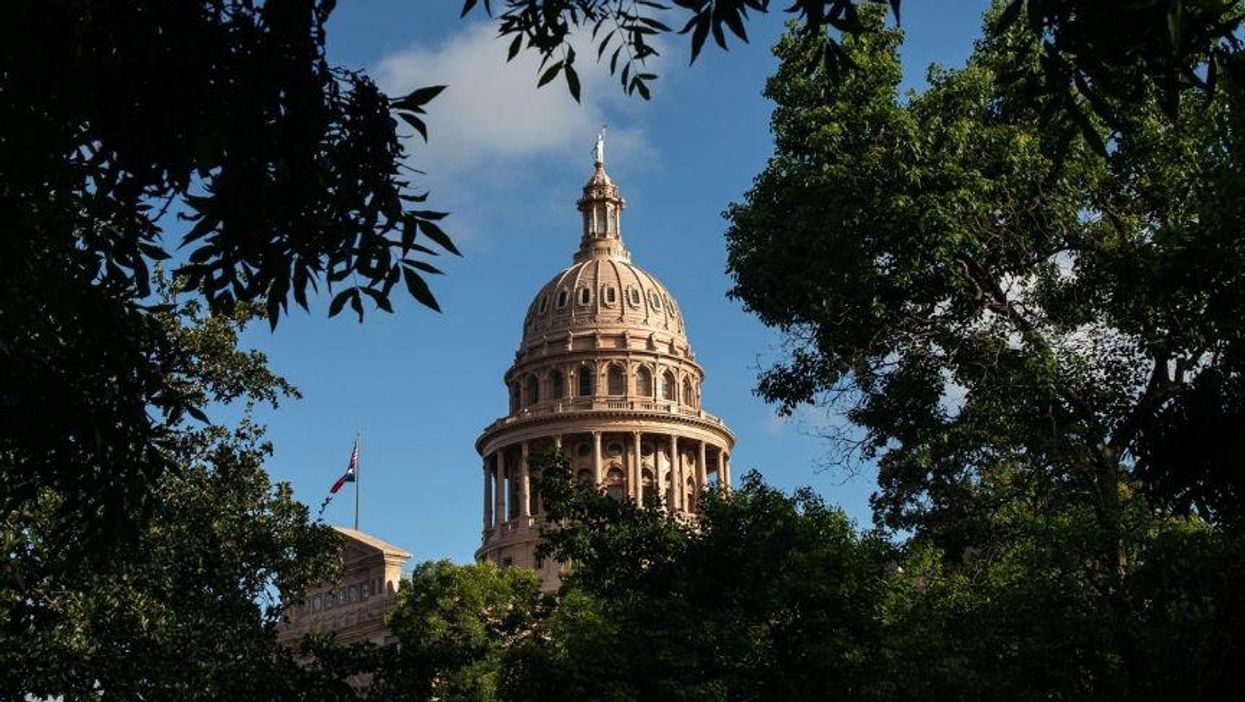The headline seemed almost impossible to believe, but this is America in 2021, and nothing should surprise us. "Southlake School Leader Tells Teachers To Balance Holocaust With 'Opposing' Views," wrote NBC News.
In a leaked recording, a top administrator advised Texas educators in the Carroll school district last week that if they had a book about the Holocaust in their classroom, they should also offer a book from an "opposing" perspective. This ignited a firestorm including calls for the administrator to resign—though it's clear from the audio recording that she was not actually advocating the merits of this approach but trying rather abysmally to navigate the contours of Texas's new law, HB 3979, which she believed mandated this course of action.
HB 3979 was part of a slew of regressive bills (along with a six-week abortion ban and an open carry law) signed by Texas Governor Abbott this legislative session. It was drafted as part of a nationwide pushback against the bogeyman of "Critical Race Theory," which is a dense academic field that studies how race and racism have impacted legal and social structures in the U.S. Because of its complexity, CRT is only taught in law schools, but it has become the catch-all phrase by the right for anything that asks students to examine history or society through the lens of racially oppressed minorities.
Among its more controversial aspects, the new law specifically bans the teaching of the New York Times' 1619 Project, which examines U.S. history from the time enslaved people first arrived on these shores over 400 years ago. And the new law also requires that when teachers discuss "controversial current events or widely debated and currently controversial issues of public policy or social affairs," they must, "to the best of their ability, strive to explore such issues from diverse and contending perspectives without giving deference to any one perspective."
The stated goal was to help ensure educators did not "indoctrinate" students into a particular (i.e. liberal or progressive) mindset. As the Texas Tribune noted, however, throughout the debate on the law supporters often expressed concern that teachers were unfairly blaming white people for historical wrongs. Protecting the feelings of white students by the outright banning of certain topics seems like overkill, and the way the law is worded leads inevitably toward the kind of confusion, overreach and bizarre behavior that we saw occur in Southlake. State Rep. James Talarico in fact warned when the bill passed that it would have a "chilling effect on social studies and civics teachers across the state." He was quite on the mark.
The problem arises when what ought to be non-controversial subjects, such as the actual history of genocide, slavery, or even the Holocaust, becomes controversial because parents believe that their children shouldn't be made to feel bad about their own heritage. Deciding what history to teach and whose side of the story to tell winds up mattering a lot, as we have seen from the whitewashing of the evils of slavery by reducing or even eliminating references to its horrors in textbooks.
Moreover, educators understandably do not seem to know or understand what the "diverse and contending perspectives" actually would be with respect to certain "controversial" issues such as the Civil Rights Movement, the removal of Confederate statues, or even the central role of slavery in Texas in its war for independence from Mexico. To teach history is to ignite controversy these days, but to give "deference" to ahistorical and inaccurate or biased accounts, simply because the right has now made actual history controversial, would be an abdication of an educator's role to teach the truth.
To its credit, the school district quickly apologized and put out a statement affirming that the fact of the Holocaust is not controversial, that teaching it is simply teaching history, and therefore no opposing viewpoint is required because "there are not two sides to the Holocaust." But the law is certainly vague and over-broad enough that it's not surprising that administrators and educators would tend to err on the side of caution, even at the risk of absurd results.
Southlake, it so happens, is not new to controversy around race, history and education. The community, which is situated in the suburbs northwest of Dallas, is majority white but rapidly diversifying. It made headlines back in 2018 when a viral video of white students chanting the N-word led to an outpouring of accounts of racial harassment and discriminatory incidents.
According to NBC, which has been airing a podcast series on the town because of its history of racial tension, the district responded with a "diversity and inclusion plan" that grew so heated that two school board members were charged with misdemeanor criminal charges for allegedly violating open meeting laws while working to pass it. A restraining order is currently on the diversity plan, and at the urging of far-right conservative groups, parents have packed school board meetings condemning what they believe is the teaching of CRT because it includes new rules and lessons on race and diversity. Progressives have responded with calls for greater protection of vulnerable students of color and LGBTQ+ kids from a permitted pattern of bullying.
Sensing that the Southlake Holocaust controversy is not an isolated incident and that the interpretation of the new law is quickly becoming a larger issue across Texas, State Senator José Menéndez issued a letter demanding a "thorough review of how Texas public schools are implementing House Bill 3979" and requesting that "immediate action be taken to refute hateful and racist rhetoric in our public schools." It seems evident that this is not the last we will hear about HB 3979 or the culture war it has helped feed.
For more political analysis, subscribe to the Status Kuo newsletter.













 @DuncanCecil/X
@DuncanCecil/X @@realDonaldTrump/Truth Social
@@realDonaldTrump/Truth Social @89toothdoc/X
@89toothdoc/X @xray_media/X
@xray_media/X @CHRISTI12512382/X
@CHRISTI12512382/X
 @sza/Instagram
@sza/Instagram @laylanelli/Instagram
@laylanelli/Instagram @itssharisma/Instagram
@itssharisma/Instagram @k8ydid99/Instagram
@k8ydid99/Instagram @8thhousepath/Instagram
@8thhousepath/Instagram @solflwers/Instagram
@solflwers/Instagram @msrosemarienyc/Instagram
@msrosemarienyc/Instagram @afropuff1/Instagram
@afropuff1/Instagram @jamelahjaye/Instagram
@jamelahjaye/Instagram @razmatazmazzz/Instagram
@razmatazmazzz/Instagram @sinead_catherine_/Instagram
@sinead_catherine_/Instagram @popscxii/Instagram
@popscxii/Instagram
